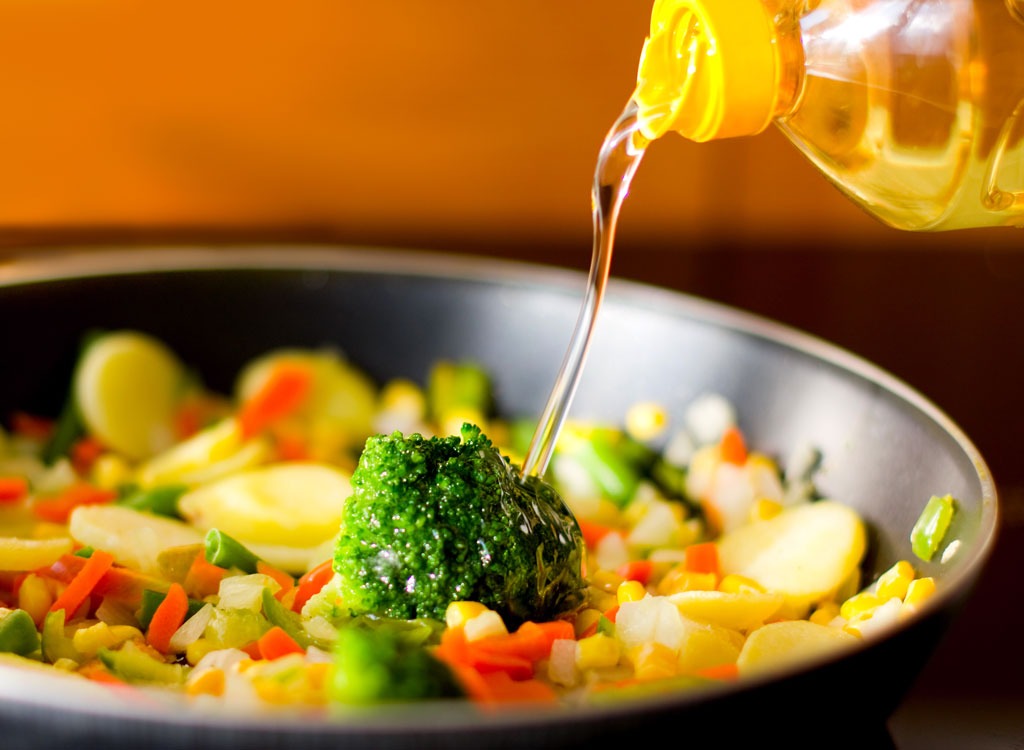Did You Know Canola is an Acronym?

It's the giant plastic bottle of cooking oil we all grew up with. From stir-fries to cake mixes to stove-top popcorn, this light yellow oil seemed to be the Jack-of-all-trades kitchen staple most American families couldn't live without. But even though canola oil is so common, most people don't know where the name came from.
We know olive oil comes from olives, and avocado oil is from avocados. So, does canola oil come from canolas? What even is a canola if that does exist?
What is Canola?
Canola oil is actually a vegetable oil derived from rapeseed. The name itself stems from the Rapeseed Association of Canada branding it as canola to stand for Canada oil. Other sources claim it's an acronym for Canada oil low acid.
Regardless, canola oil was definitely a remarketing effort to distance itself from the unfortunate source name. And since canola is an acronym, technically the term canola oil is redundant; it's like saying Canada oil oil, similar to how ATM machine is redundant (ATM stands for automated teller machine).
Why Canola Oil Is So Popular
Canola oil has a smoke point of about 400 degrees Fahrenheit, which is why it's so versatile and a popular oil for deep frying. It also has a pretty neutral flavor so it won't dominate dishes like olive oil and coconut oil can.
Is Canola Oil Healthy?
Even though canola oil is so widely used, is it a healthy oil to keep stocked in your pantry? It's relatively low in saturated fat, about 1 gram per tablespoon as opposed to coconut oil, which has 11 grams of saturated fat per tablespoon. Canola oil also is high in heart-healthy monounsaturated fats, about 9 grams per tablespoon, and polyunsaturated fats, about 4 grams per tablespoon. Studies have shown canola oil, when substituted for saturated fats, can lower LDL or "bad" cholesterol.
But just because canola oil is high in unsaturated fats doesn't mean it stays that way when it hits store shelves. It's exposed to high heats during the manufacturing process, which can damage the oil since polyunsaturated fats are sensitive to high temperatures.
And canola oil, like other vegetable oils, are associated with other negative health consequences, such as inflammation and diminishing brain function.
Bottom Line: Everything in Moderation
Thanks to canola oil's high smoke point, neutral taste, and inexpensive price point, it's become a huge staple in American homes. And with a small amount of saturated fat and a high number of omega-3 fatty acids, it's gained a reputation as a health food. Still, there are other, better oils to cook with. Quality extra virgin olive oil is rich in antioxidants and heart-healthy monounsaturated fats, and adds a robust flavor to food.
Sure, you can still cook with canola—just don't douse everything with it. A little goes a long way.








